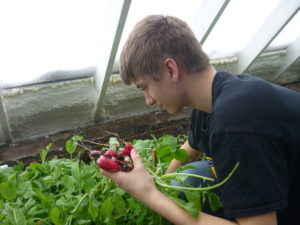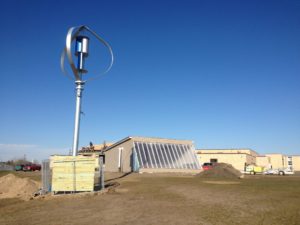From YES! Coordinator Winston Pennington-Flax:

With the last weeks of summer now a distant memory, it might seem like an unusual time to be thinking about gardening. However, with the growing season behind us, we have the planning season ahead of us, and now is the time to start laying the groundwork and fostering support for local foods-based projects. Farm to School is oh so cool!
There is now more support than ever for farm-to-school and school garden projects from state and private funders, and the positive outcomes of sourcing food locally extend from the cafeteria well into our rural communities, not to mention the global climate. The Minnesota Farm to School website is chock full of resources, videos, and instructional manuals for getting local produce into hungry mouths, and the Department of Agriculture has a generous grant for those that wish to create a feasibility plan and implement changes to their food infrastructure.
Many farms and schools in the upper Midwest, including YES! teams from Lac qui Parle Valley and New London-Spicer, have taken different approaches to sourcing local food that work with our northern climate rather than against it, using hoop houses, passive solar greenhouses, and hydro/aquaponic growing systems. Earlier this year, MPR wrote a feature on Paradox Farms, an Otter Tail County farm business that uses a greenhouse to grow deep into winter and a good candidate for a winter workshop visit. These projects not only pay for themselves by providing nutritious, local food to the cafeteria, but also provide an educational space for hands on learning and cultivation of real-life skills.

If this piques your interest, at noon on October 14th there is a Farm to School webinar. In celebration of National farm to School Month, this webinar will offer an introductory look at farm to school. Three speakers will discuss the three core elements of farm to school: procurement, education and school gardens. A 20-minute presentation will be followed by a Q&A session.
Please see this list (it will download when you click) for a comprehensive look at the many other grants available to get school gardens growing, and get in touch with your area’s YES! coordinator for more opportunities and help getting started!
